News
Kalu Reiterates Nigeria’s Commitment To Social Development, Justice
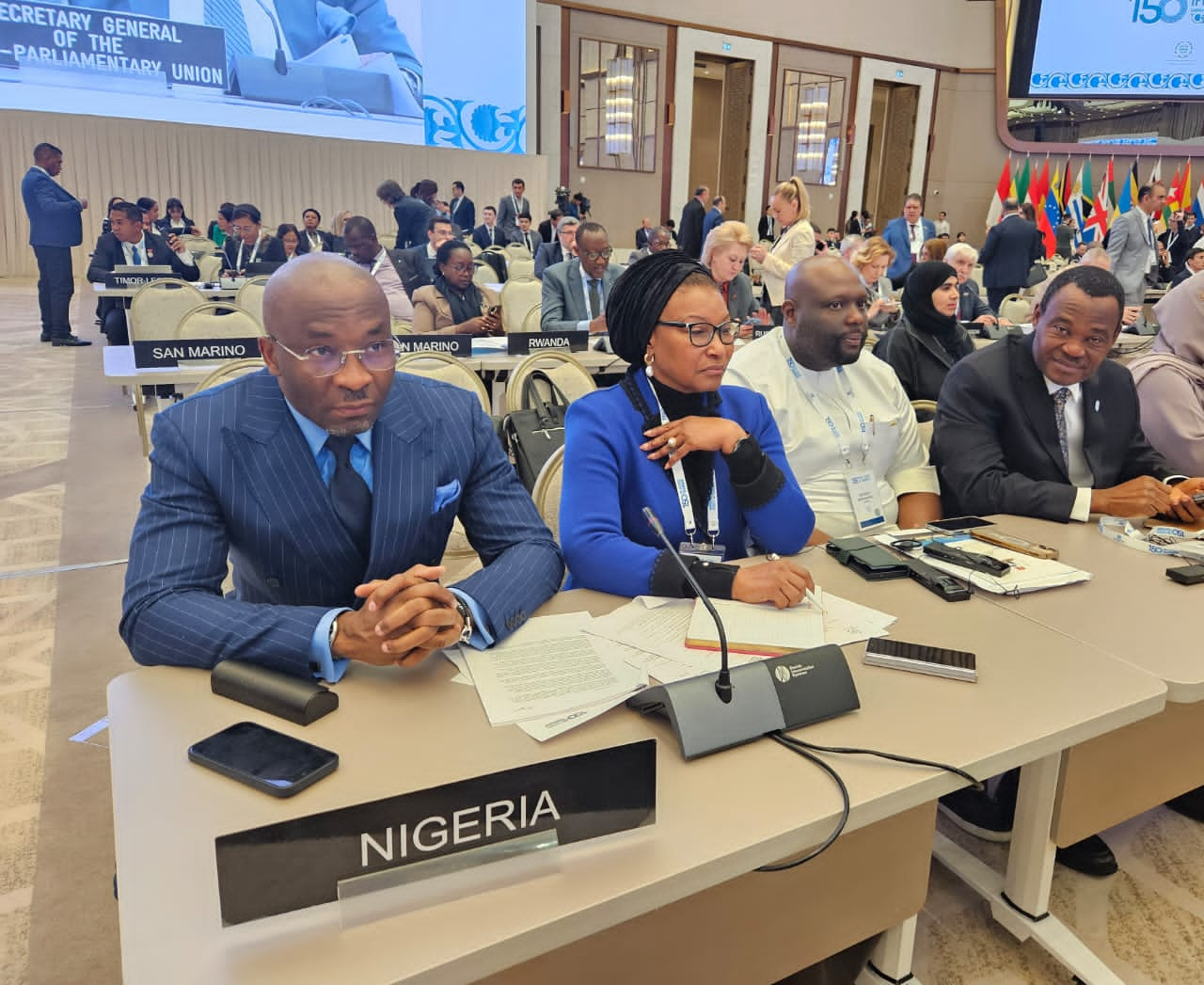
By Gloria Ikibah
He said: “Nigeria has taken decisive steps to meet the global demand for sustainable social development and justice. Our legislative achievements in recent years bear testament to our unflinching commitment. One of the key pillars of our strategy has been the establishment of regional development commissions. Over the past year, the Nigerian Parliament has enacted legislation to create four new regional development commissions.
“These bodies are dynamic institutions tasked with channeling resources where they are needed most, ensuring that policy interventions are tailored to the unique challenges and opportunities of each region. By decentralizing our development efforts, we are breaking away from the one-size-fits-all approach and ensuring that every region can chart its own course toward sustainable progress.
“We passed the Student Loan Act 2024 to open higher education to the underprivileged; established national commissions for Mass Literacy, Almajiri and Out-of-School Children, Nomadic Education, Refugees and IDPs, and Persons with Disabilities; strengthened healthcare by ensuring free emergency treatment for pregnant women and expanding health coverage via the National Health Insurance Authority; expanded health coverage, and created financial support systems.
“Advanced social inclusion with the Not Too Young to Run Act to unlock governance spaces for youth; we are considering five new gender equity bills to boost women’s representation, and have enhanced funding for the Ministry of Women Affairs for grassroots empowerment; and passed the Nigeria Startup Act 2022 and Companies and Allied Matters Act 2020 to unlock digital opportunities for young entrepreneurs and tech innovators, especially women.”
“Complementing these initiatives are our progressive tax reforms, driven by our progressive reformer, President Bola Ahmed Tinubu. The recent tax reform bills, which emphasize a progressive taxation framework, are designed to ensure that those who benefit the most from our nation’s economic activities contribute their fair share, while vulnerable Nigerians are not overly burdened.
“These reforms are critical in generating additional resources to fund our expanding portfolio of social services and infrastructure projects. In essence, by strengthening the fiscal backbone of our government, we are better equipped to invest in the sectors that will lift our society as a whole.
“A cornerstone of our approach is robust parliamentary oversight. Effective oversight ensures that public funds are judiciously managed and that our social investments reach the intended beneficiaries. In Nigeria, we have strengthened our oversight structures, reinforcing transparency and accountability in all aspects of governance. This is essential not only to maintain public trust but also to ensure that every legislative measure translates into tangible improvements in the lives of our citizens.
“Inclusivity in governance remains a driving force behind our policies. As part of our commitment to social inclusion, we have embarked on a comprehensive strategy to ensure universal access to basic services. Over the past two years, targeted social investments by Nigeria’s federal executive have reached more than five million households. These initiatives are specifically designed to support the most vulnerable segments of our society, including older adults, persons with disabilities, and children. Our goal is clear: justice is achieved when every Nigerian—regardless of status—is given a fair chance at prosperity”, he said.
The Deputy Speaker further expressed worries that the continent of Africa was burdened by a huge debt profile that strains it public finances, making it difficult to realize the sustainable social development.
“The path to sustainable social development is not without its challenges, especially for Africa. The continent is burdened by a huge debt load that strains public finances and often limits the resources available for social investments. Can Africa optimize social development justiciably in the face of such financial constraints?
“This is a critical question, and while the debt burden presents formidable challenges, it must not be an excuse for inaction. Instead, it calls for innovative fiscal policies, debt restructuring, and, importantly, greater support from the global community”, he said.
He however assured that Nigeria’s journey towards social development and justice is defined by a steadfast commitment to human dignity, equity, and sustainable progress.
“Today, as we deliberate on parliamentary action for social development and justice, I call upon all members of this esteemed assembly to reaffirm our shared commitment to a new social contract—one that places people at the center of every decision and prioritizes robust oversight and accountability,” he added.
News
Celebrity boxing: Speed Darlington wants rematch after losing to Portable
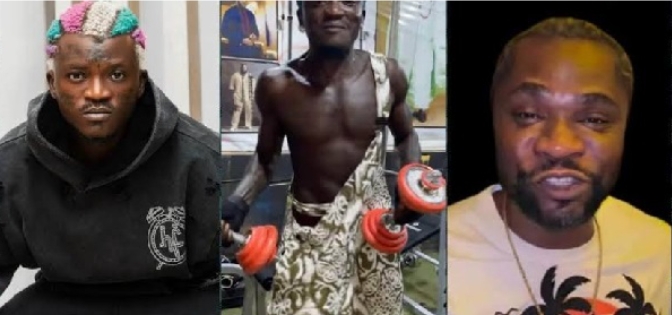
By Kayode Sanni-Arewa
Nigerian singer Speed Darlington is calling for a rematch against Portable after losing to him in a celebrity boxing match.
Speed Darlington was knocked out in the second round, and he’s unhappy about the outcome.
In a video, he claimed Portable didn’t deserve the win and the prize money, saying he had plans to use the money to build a swimming pool for his community in Imo State.
Portable, I want a rematch. E dey pain me say you dey carry all that money dey go. E dey break my heart.
” I want a rematch. It’s so unfair. You have up to two experience before me and you fight. I never enter ring before. I did not come from poverty,” he said.
“You don’t deserve that money. E dey pain me. I want to build swimming pool for my villagers. I need a rematch, Portable”, he said.
According to Speed Darlington, Portable had an unfair advantage due to his experience, accusing him of using supernatural means to win the fight.
He also claimed he suffered a shoulder injury during the match despite not feeling tired.
Speed Darlington, who wants a rematch, said he needs 30 days to prepare better
News
Israel’s remote controlled bulldozers breaking ground in Gaza war

At first glance, there is nothing unusual about the bulky bulldozer turning up soil at a testing site in central Israel, but as it pulled closer it became clear: the driver’s cabin is eerily empty.
This is the Robdozer, a fortified engineering vehicle manned remotely, and in this case operated from a military expo halfway across the globe in Alabama.
Army engineers and military experts say that the Robdozer — the robotic version of Caterpillar’s D9 bulldozer — is the future of automated combat.
The Israeli military has used D9 for years to carry out frontline tasks like trowelling roads for advancing troops, removing rubble and flattening terrain.
But since war in Gaza broke out in October 2023 and later in Lebanon, the Israeli military has increasingly deployed this robotic version in a bid to enhance its field operations and reduce the risks to its troops.
“The idea is to eliminate the person from the cockpit of the dozer,” said Rani, whose team at the state-owned Israel Aerospace Industries developed the Robdozer.
An unmanned D9 bulldozer digs up a field during a demonstration to the press at the Israel Aerospace Industries (IAI) quarters near Tel Aviv on March 26, 2025. Israel’s increasing use of advanced technology on the battlefield, from air defence systems to a broad range of AI-driven intelligence tools, has been well-documented but also criticised for inaccuracies, lack of human oversight and potential violations of international law. (Photo by GIL COHEN-MAGEN / AFP)
During the Gaza war, the military has increasingly opted for the unmanned version, which can carry out a full range of tasks “even better than a human”, said Rani, using his first name only for security reasons.
While such vehicles and other systems are currently operated by humans, future versions could be autonomous, raising ethical and legal concerns over the unchartered future of warfare being shaped by the Israeli military in the Gaza war.
‘Changing the paradigm’
Israel’s increasing use of advanced technology on the battlefield, from air defence systems to a broad range of AI-driven intelligence tools, has been well-documented but also criticised for inaccuracies, lack of human oversight and potential violations of international law.
Analysts say the growing Israeli deployment of the Robdozer reflects broader global trends towards automation in heavy combat vehicles, like remote-controlled personnel carriers that operate much like drones.
An Israeli military official, who requested anonymity to discuss sensitive matters, told AFP that the army has been using “robotic tools for over a decade, but in very small numbers. Now it is being used in large-scale warfare”.
News
70-hour Chess Marathon: Onakoya reportedly breaks record set by Norwegians
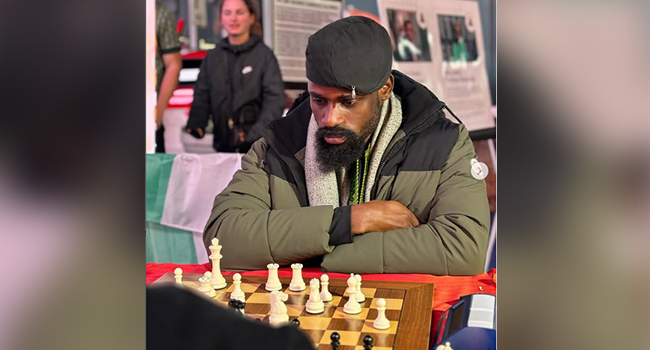
Nigerian chess sensation and founder of Chess in Slums Africa, Tunde Onakoya, has broken the chess marathon record of 61 hours, 3 minutes, and 34 seconds, set by two Norwegian players, Hallvard Haug Flatebø and Sjur Ferkingstad, in June 2024.
Onakoya and his chess partner, Shawn Martinez, are currently aiming to complete a 70-hour chess marathon in Times Square, New York.
The marathon, a four-day non-stop gameplay, started on April 17.
In a post shared on X shortly after surpassing the current record, he expressed fulfillment and called for action to educate and create opportunities for street children in Nigeria.
For all the dreamers! We’ve officially BROKEN THE RECORD with my brother,” he wrote.
Although the official confirmation from Guinness World Records is still being awaited, Nigerians and chess lovers from different parts of the world have congratulated the chess master on his latest achievement.
-
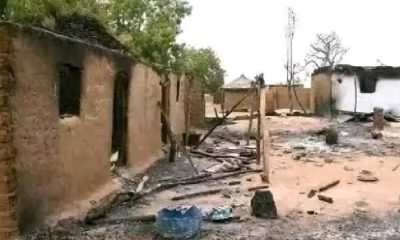
 News22 hours ago
News22 hours agoBLACK EASTER: Over 150 massacred in Plateau, Benue
-
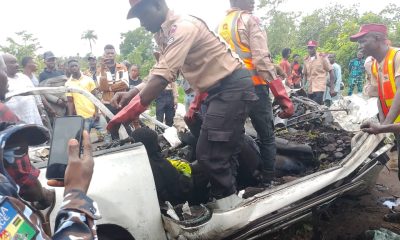
 News18 hours ago
News18 hours agoDouble tragedy: Father, three children, maid killed in Osun road crash
-
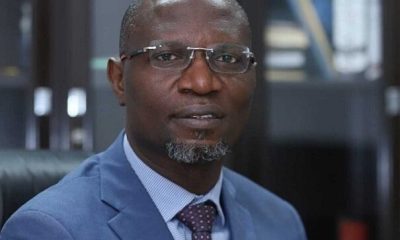
 News18 hours ago
News18 hours agoSAD! SEC DG says “we can’t recover N1.3trn Nigerians lost to CBEX ponzi scheme”
-
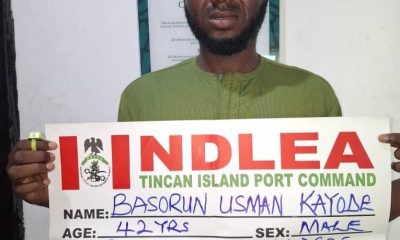
 News16 hours ago
News16 hours agoNDLEA nabs bandits supplier with drugs concealed in private part(Photos)
-
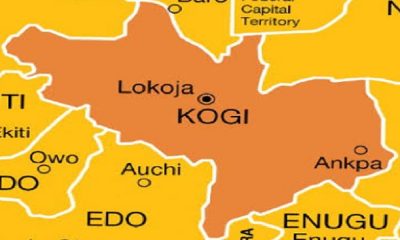
 Metro22 hours ago
Metro22 hours agoShock as 2 naked lovers found dead in Kogi
-

 News22 hours ago
News22 hours agoIMF expresses concern over high poverty rate, food insecurity in Nigeria
-

 Economy22 hours ago
Economy22 hours agoVolvo announces termination of 800 U.S. workers, cites tariff, market decline
-

 Sports11 hours ago
Sports11 hours agoBREAKING! Arsenal hammer relegation Bound Ipswich 4-0






